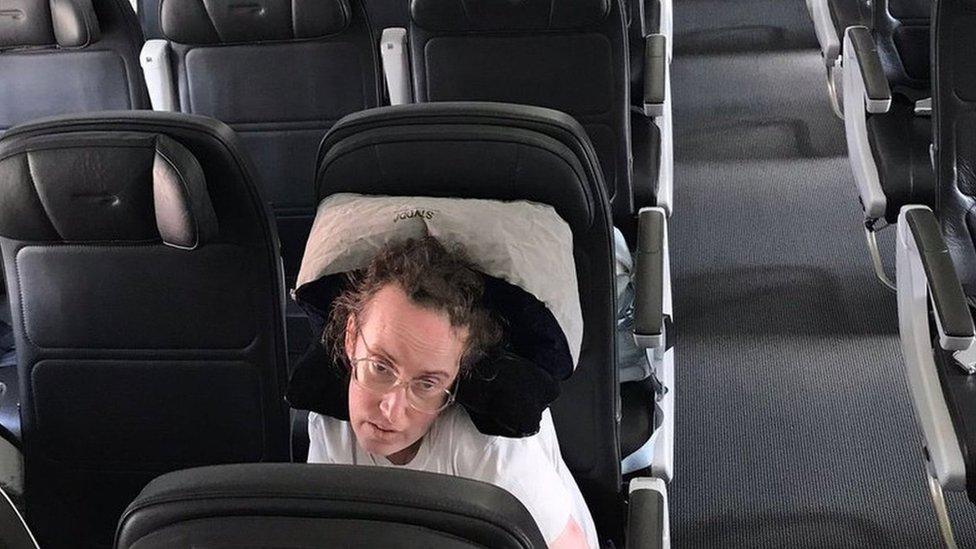Bristol traveller demands dignity and respect from airlines
- Published
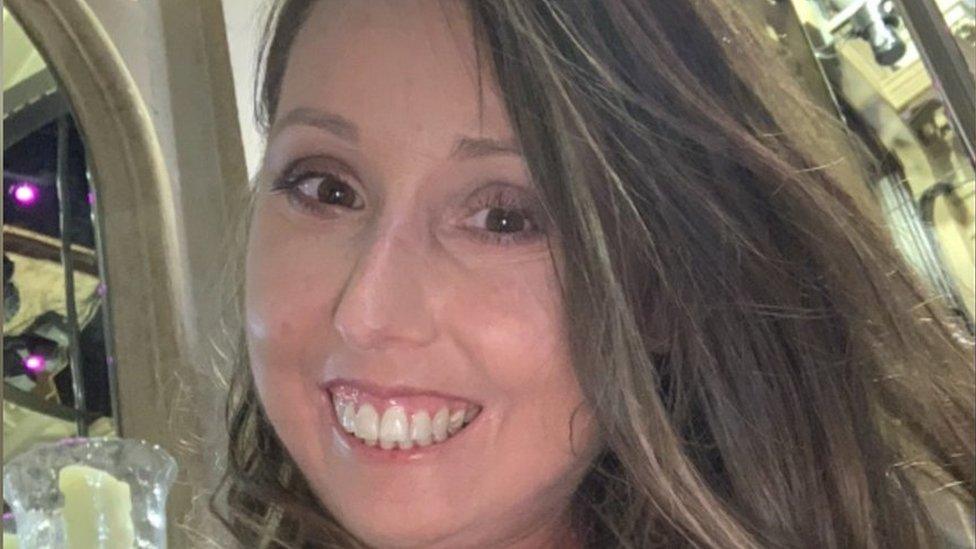
Sarah Cox was left stranded in Dubai when her wheelchair was broken in transit
A woman with limited mobility has claimed that airlines and airports are routinely failing to treat disabled people with dignity and respect.
Sarah Cox, 36, from Bristol, said she always has issues "everywhere I go, every airport (and) every airline".
She said she was left stranded in Dubai earlier this month after her wheelchair was broken in transit.
The UK Civil Aviation Authority said it was working with airlines to improve accessibility.
Ms Cox said the incident is not unusual and is campaigning for something to be done to improve the travelling experience for disabled passengers.
"It's multi-faceted," she added. "It's about airlines, airports and the attitudes of staff and it's more than just wheelchairs."
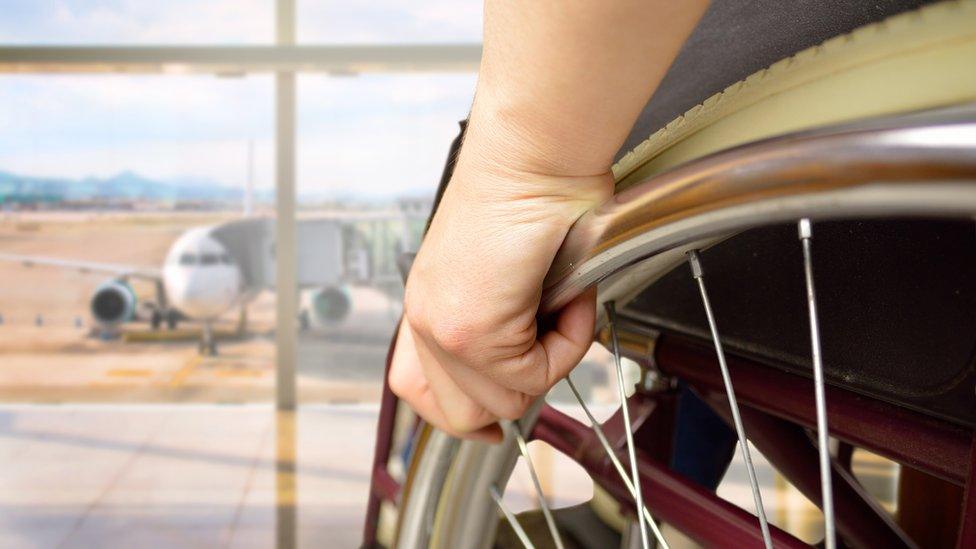
Airlines and airports are being accused of failing disabled passengers
Ms Cox, who is studying for a degree in health and social care at the Open University, sufferers from systemic sclerosis, also known as scleroderma, and lung disease.
The mother-of-one was a "fit and agile" teenager before she was diagnosed with the degenerative condition aged 17.
In the ensuing years, she has had 67 operations to remove all of her fingers and four toes, and uses a wheelchair.
She also needs an oxygen tank when she goes on flights because of the reduced amount of it onboard.
Before the pandemic she said that this was provided by airlines until a change of policy saw them ask for disabled passengers provide their own.
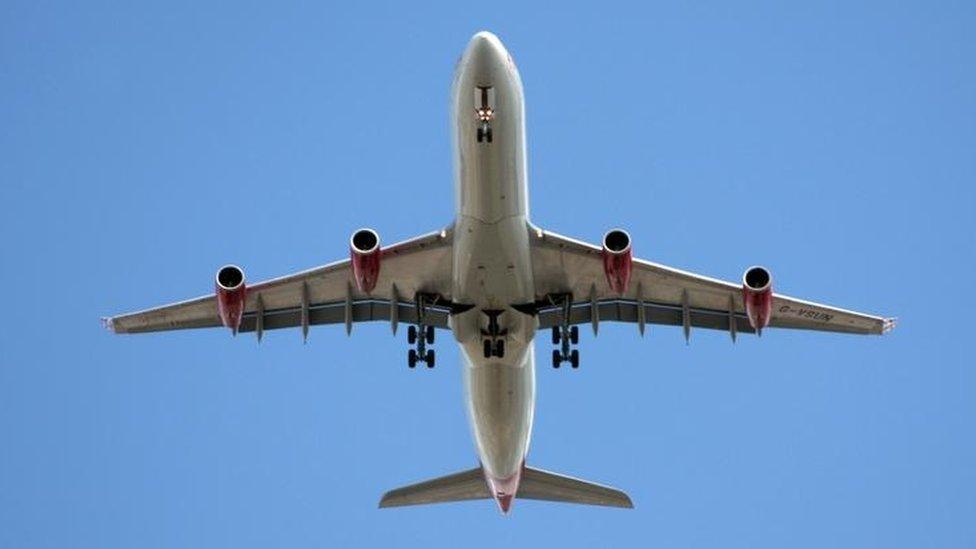
The UK Civil Aviation Authority says it is working with airlines on improving accessibility
She claims a private company quoted her £1,200 for oxygen tanks for a return flight to the Dominican Republic for her sister's wedding last year.
This would have been on top of the £1,000 medical travel insurance she had to pay.
Ms Cox, who lives with her husband Rob, 39, and 14-year-old son in Kingswood, is now calling for disabled people to have equal rights on flights.
Ms Cox said: "They don't care. It was only when I threatened legal action saying it was discriminatory and putting barriers up to disabled people that the agreed to offer it as 'a gesture of good will'."
'Seen as an afterthought'
Fazilet Hadi from Disability Rights UK said disabled passengers are often "seen as an afterthought".
"We don't seem to have airlines that really prioritise this issue, they're not investing enough in passenger assistance.
"I think the numbers of disabled people now travelling is much, much more and the airlines haven't caught up with that.
"I think it's a whole range of issues. We need leadership and we need sanctions when we don't get the service that we're entitled to," she said.
Anna Bowles, head of consumer policy and enforcement at the UK Civil Aviation Authority said: "Over the last decade, we've helped to deliver significant improvements for passengers through our first-of-its-kind airport accessibility framework, which has helped oversee millions of pounds of investment made by airports towards improving the experience for disabled passengers.
"We are currently consulting on plans to introduce a similar framework for airlines to improve experiences with ratings that would include consideration of access around requesting assistance, onboard facilities including seating and toilets, as well as boarding and disembarking.
"We welcome innovation which enables increased accessibility for wheelchair users on flights and engage with airlines to understand how they are using these developments to better the experience for disabled and less mobile passengers."

Follow BBC West on Facebook, external, Twitter, external and Instagram, external. Send your story ideas to: bristol@bbc.co.uk , external
Related topics
- Published10 May 2023
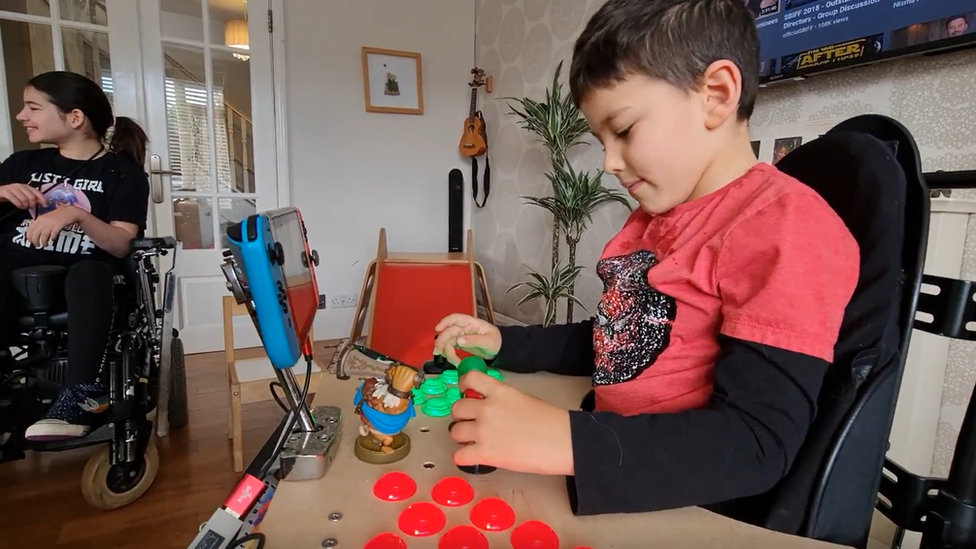
- Published2 May 2023
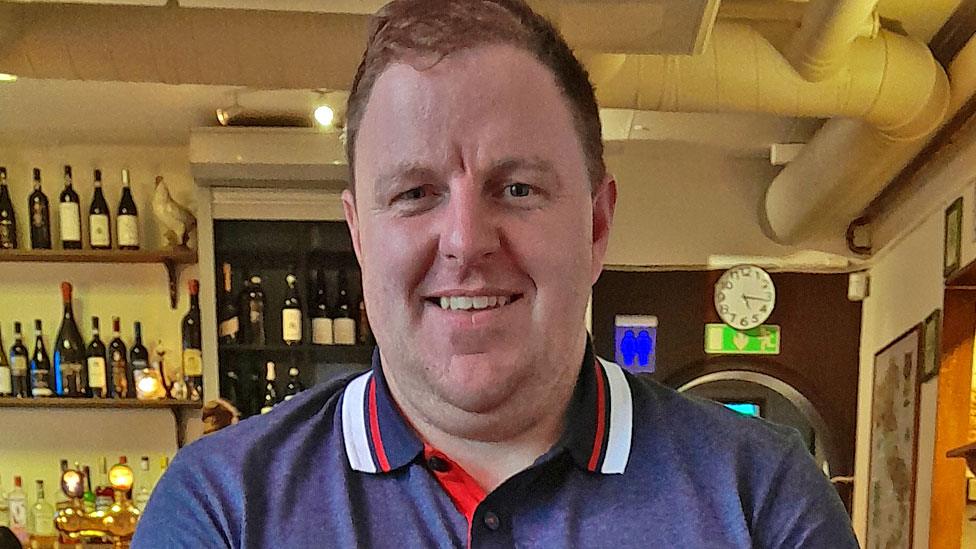
- Published13 December 2022
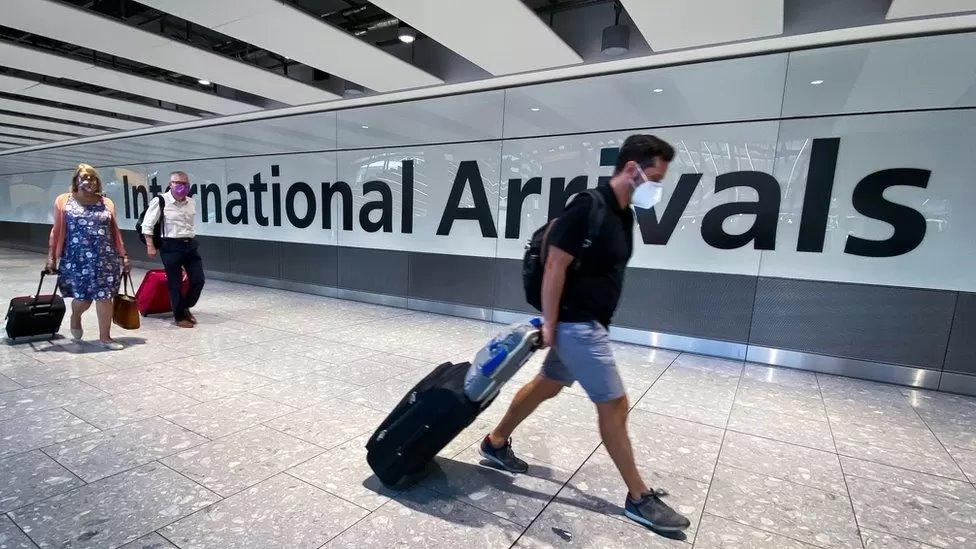
- Published10 June 2022
